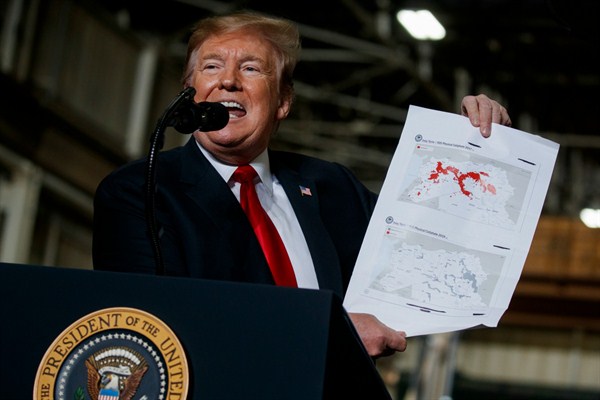Foreign policy rarely plays a major role in U.S. presidential elections. The United States has always been an insular nation. Particularly for people in the American heartland, the world’s troubles seem far away. The connectivity of the modern world and the globalization of terrorism have challenged that insularity, but even so, national elections seldom pivot on international affairs. 2020 could be different: Debates over American foreign policy and national security could sway enough undecided voters to tip the scales, and the political battle lines are already forming.
As Alex Ward pointed out in Vox, President Donald Trump is likely to sell a story of foreign policy successes to voters in the upcoming campaign: that he defeated the Islamic State; stopped North Korean nuclear and missile testing; repaired U.S. relations with Israel; pushed back on Iran, Venezuela and Russia; fixed some trade problems; increased U.S. military spending; compelled some additional defense spending in Europe; and made progress on an Afghanistan peace process. How will Democrats respond? “We have to run on a proactive message of our own,” a campaign staffer to one Democratic presidential candidate told Ward, “instead of spending all of our time attacking Trump.”
What will that entail? Here are five key points that the Democratic candidates, and the eventual presidential nominee, will likely use to dispute Trump’s narrative.

